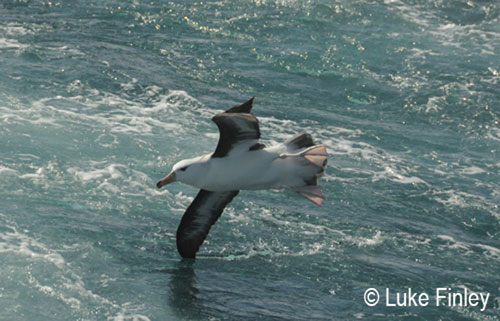There are far more species of albatrosses and petrels of the order Procellariiformes in the southern hemisphere than in the north. This holds true for ACAP-listed species, with only three of the 29 listed albatrosses and petrels occurring in the northern hemisphere.
A recently published paper in the journal Global Ecology and Biogeography addresses this observation by adding wind to other forms of environmental energy resources (e.g. those derived from temperature and primary productivity) and of ocean extent to consider the large-scale distribution of procellariiform species richness.
The paper, authored by Richard Davies of the UK's University of East Anglia, along with colleagues in South Africa and the UK, concludes that wind energy is a significant factor, probably related to the long-distance foraging for patchy resources undertaken by albatrosses and petrels, including when breeding.
In relation to ACAP's efforts to enhance the conservation of listed species, the following quote from the paper appears of interest:
"Concerns over the consequences of global climate change for the survival of procellariiform species have included the issues of sea level rise and other ecological changes affecting island breeding populations, and of changes in sea temperature causing shifts in the proximity of marine resources. This study suggests the potential changes to large-scale wind currents may be a further global climate change issue of relevance to the future distribution of pelagic seabirds."

Reference:
Davies, R.G., Irlich, U.M., Chown, S.L. & Gaston, K.J. 2010. Ambient, productive and wind energy, and ocean extent predict global species richness of procellariiform seabirds. Global Ecology and Biogeography 19: 98-110. http://www3.interscience.wiley.com/journal/123188063/abstract.
John Cooper, ACAP Information Officer, 18 January 2010

 Français
Français  English
English  Español
Español